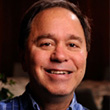International Conference on Speech Language Pathology
Las Vegas, USA

Stephen N. Calculator
University of New Hampshire, USA
Title: Fostering communication skills in individuals with severe disabilities through enhanced natural gestures: Research to practice
Biography
Biography: Stephen N. Calculator
Abstract
Individuals with severe disabilities, particularly those identified as Beginning Communicators, present special challenges to speech-language pathologists (SLPs) in terms of the severity and breadth of their communication challenges. This is related in part to the numerous factors (e.g., intellectual, communication, language, motor, sensory and behavioral) underlying these disabilities. Given the fact that many of these individuals are unable to use speech as a primary method of communication and various forms of Augmentative and Alternative Communication (AAC) become the method of choice. These often include combinations of aided (e.g., speech generating devices) and unaided (e.g., natural gestures and sign language) forms of communication. This presentation will focus on unaided methods of communication. More specifically, it will describe and then explore the efficacy of a system found to be useful in developing inventories of communicative behaviors, Enhanced Natural Gestures (ENGs). Unlike other unaided forms of communication such as natural gestures and sign language, ENGs are by their nature easily taught to individuals and readily understood by unfamiliar communication partners. They build upon behaviors individuals are already demonstrating in their interactions with objects and participation in events. This workshop will begin with a brief overview of enhanced natural gestures. It will then focus on the steps used to teach them. Two primary instructional methods, mand-model with time delay and molding-shaping will be described. The workshop will conclude with a review of recently published studies that have validated the efficacy of this approach. Implications for future research and practice will be described.
